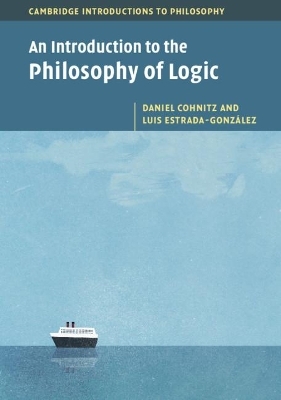
An Introduction to the Philosophy of Logic
Seiten
2019
Cambridge University Press (Verlag)
978-1-107-52772-0 (ISBN)
Cambridge University Press (Verlag)
978-1-107-52772-0 (ISBN)
The first comprehensive textbook covering the interrelations between topics in the philosophy of logic in an accessible, non-technical, and up-to-date way. Avoiding complex jargon, this book engages with metaphysics of logic, logical pluralism, and the meaning of logical constants, and will be a highly important resource for students of philosophy.
Philosophy of logic is a fundamental part of philosophical study, and one which is increasingly recognized as being immensely important in relation to many issues in metaphysics, metametaphysics, epistemology, philosophy of mathematics, and philosophy of language. This textbook provides a comprehensive and accessible introduction to topics including the objectivity of logical inference rules and its relevance in discussions of epistemological relativism, the revived interest in logical pluralism, the question of logic's metaphysical neutrality, and the demarcation between logic and mathematics. Chapters in the book cover the state of the art in contemporary philosophy of logic, and allow students to understand the philosophical relevance of these debates without having to contend with complex technical arguments. This will be a major new resource for students working on logic, as well as for readers seeking a better understanding of philosophy of logic in its wider context.
Philosophy of logic is a fundamental part of philosophical study, and one which is increasingly recognized as being immensely important in relation to many issues in metaphysics, metametaphysics, epistemology, philosophy of mathematics, and philosophy of language. This textbook provides a comprehensive and accessible introduction to topics including the objectivity of logical inference rules and its relevance in discussions of epistemological relativism, the revived interest in logical pluralism, the question of logic's metaphysical neutrality, and the demarcation between logic and mathematics. Chapters in the book cover the state of the art in contemporary philosophy of logic, and allow students to understand the philosophical relevance of these debates without having to contend with complex technical arguments. This will be a major new resource for students working on logic, as well as for readers seeking a better understanding of philosophy of logic in its wider context.
Daniel Cohnitz is Professor of Theoretical Philosophy at Universiteit Utrecht. He has published widely on metaphilosophy, epistemology, and the philosophy of language and logic. Luis Estrada-González is an associate researcher at the Institute for Philosophical Research at the National Autonomous University of Mexico. His research focuses on logic and its philosophy.
Introduction; 1. The nature and tools of logic; 2. The standard story and its rivals; 3. Is second-order logic proper logic?; 4. Logical constants; 5. The metaphysics of logic; 6. The epistemology of logic; 7. Logical pluralism; 8. Logic, reasoning, and rationality; 9. Beyond truth-preservation; 10. The place of logic in science.
| Erscheinungsdatum | 17.05.2019 |
|---|---|
| Reihe/Serie | Cambridge Introductions to Philosophy |
| Zusatzinfo | 6 Tables, black and white; 5 Line drawings, black and white |
| Verlagsort | Cambridge |
| Sprache | englisch |
| Maße | 173 x 245 mm |
| Gewicht | 500 g |
| Themenwelt | Geisteswissenschaften ► Philosophie ► Logik |
| Geisteswissenschaften ► Philosophie ► Metaphysik / Ontologie | |
| ISBN-10 | 1-107-52772-4 / 1107527724 |
| ISBN-13 | 978-1-107-52772-0 / 9781107527720 |
| Zustand | Neuware |
| Informationen gemäß Produktsicherheitsverordnung (GPSR) | |
| Haben Sie eine Frage zum Produkt? |
Mehr entdecken
aus dem Bereich
aus dem Bereich
ein Gegenentwurf zum kurzfristigen Denken : so werden wir zu den …
Buch | Hardcover (2023)
REDLINE (Verlag)
CHF 27,90
Buch | Softcover (2023)
De Gruyter (Verlag)
CHF 34,90


